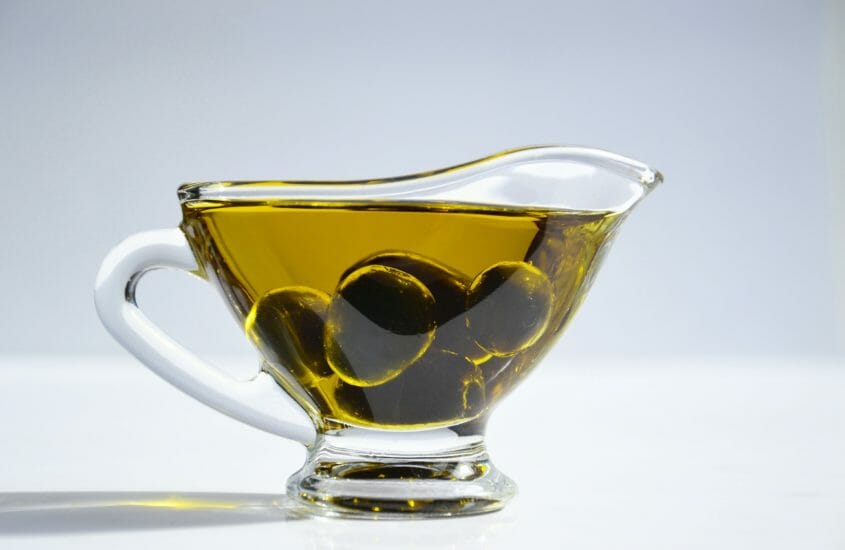Olive oil is one of the most popular cooking oils in the world. It’s a staple in many kitchens and pantries, but there are some misconceptions about what it can do for your health. Are you wondering: is olive oil good for you? We’ll tell you all about its benefits so that you can make an informed decision on whether or not to include it in your diet!
What you will learn
What is olive oil?
It is a liquid made from olives. It’s a byproduct of the process that turns fresh, ripe olives into table olives and olive oil.
The most popular types are Extra Virgin Olive Oil (EVOO) and pure virgin olive oils – which means they’re cold-pressed or not processed with chemicals before bottling.
How does olive oil affect your health?
Using this oil in your diet can have a huge impact on your health. Let’s explore:
- It’s rich in monounsaturated fats, which are good for the heart and circulatory system
- It’s a healthy fat that can lower blood pressure and cholesterol levels
- It has antioxidants that help fight free radicals in the body
- It contains omega-9 fatty acids which help with weight loss
- Help with reducing inflammation
- Boosts brain function
- The monounsaturated fats found in olive oil can reduce the risk of heart disease by lowering LDL cholesterol levels
- It is rich in polyphenols, which have been shown to protect against cancer cells
- It’s high in vitamin E which helps improve skin health and prevent wrinkles
- The oleic acid in olive oil has been shown to reduce the risk of diabetes, obesity, and Alzheimer’s disease
- It is a great source of antioxidants. Antioxidants help prevent the aging process and protect against chronic disease.
How can you use olive oil in your daily life?
There are so many different ways that you can add it into your diet.

- Add to your salad dressing
- Drizzle it on top of scrambled eggs or omelets
- Use it in place of butter when cooking pasta, rice, or vegetables
- Mix with lemon juice and balsamic vinegar for a light vinaigrette
- Use as a bread dip instead of mayonnaise
- Put some in the bottom of your soup bowl before adding hot soup to make the dish more flavorful and filling
- When cooking, add a teaspoon to the pan before adding any other ingredients
Check this sprayer out for easy olive oil use in your life.
Can olive oil help with weight loss?
Olive oil’s effects on weight loss are also well-documented.
A study at the University of Athens found that people who consumed a Mediterranean diet, including olive oil as their main source of fat, reduced their risk for diabetes by almost 30 percent and had smaller waistlines than those on low-fat diets.
This is because it’s rich in monounsaturated fats which can help promote healthy blood sugar levels and burn excess body fat to keep you trim.
It’s important to pay attention to how much you’re consuming – just one tablespoon will have 20 grams or 120 calories! This may be counterproductive if your goal is weight loss (or any other health concern), so stick with small amounts when cooking.
Conclusion
The benefits of olive oil are numerous, and there is no reason to deprive yourself of this tasty treat. This blog post has covered the basics of what makes it so good for you and why you should be adding more to your diet. We hope that these tips have given you a better idea about how to incorporate olives into your life in an enjoyable way!
